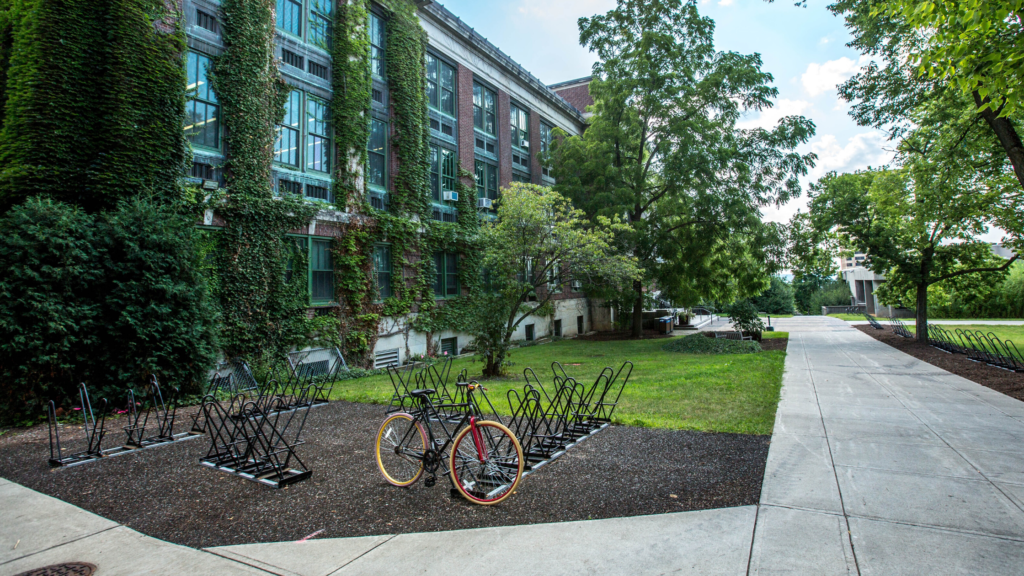
I have a confession to make . . . . I am a worrier.
A brain spinning, stomach churning, insomnia-inducing, “what-if” worst-case scenario worrier.
I have been for as long as can I remember. I inherited it from my Dad.
When I was little, I worried about everything.
If I heard a fire siren, I worried that my house was burning down.
If my Dad was late coming home from work, I worried that he had been in a car accident.
When I was walking home from school I worried that strangers were going to jump out of a white van I and kidnap me.
I worried about getting out of bed in the middle of the night and stepping into a pit of vipers. Never mind that I lived in a house in suburban New Jersey.
I worried about bears emerging from the micro-woods at the edge of our property and storming the house. My Dad had to check the woods every nigh so I could sleep.
I worried about not waking up in the morning. This is a common worry shared by countless children, especially those of us taught the macabre prayer:
“Now I lay me down to sleep, I pray the Lord my soul to keep. If I should die before I wake, I pray the Lord my soul to take."
Seriously? What was wrong with people in the 70’s? I mean, who says that sort of thing to a child? Especially right before bed?
As I grew older my worries became less fantastical; but no less intense. I stopped worrying about serial killers and immaculate conception, and started worrying about carbon monoxide poisoning, metastatic breast cancer, and pregnancy complications.
And to be fair, in my adult life, many of my worries have come true. When our family gets bad news, it tends to lead to worst case scenarios.
Everything is Not Okay
So, I try to plan for these scenarios.
And worry is a tool that helps me do this. When I worry, I start processing the pain before it fully arrives. This helps me deal with the inevitable loss and grief. It’s like a defense mechanism.
But, some people think that worry is a waste of time. They say it anticipates agony that may or may not come to bear and causes unnecessary distress.
One of those people is my husband.
He is an eternal optimist. Or, at the very least, a reluctant realist. Whenever I express worry, he always says that “everything is going to work out okay.”
Can I tell you much I HATE that sentence?
Because he is wrong.
In our family’s experience, things have not generally “worked out okay.” So I get a little bit upset when he dismisses my concerns and tells me to “stop worrying”.
“Don’t worry and “calm down” are the two most infuriating sentences in the English language.
Has he not been living the same reality as me for the last fifteen years?
I know he is thinking of my best interests. He is trying to offer me perspective and peace.
But it doesn’t work.
The vague reassurances, platitudes and prayers don’t really help when your world is spinning out of control.
The only effective antidote to worry is action.
If I am doing something productive, something over which I have control – regardless of whether it impacts the outcome or not – I feel more grounded. The distraction helps me focus on something. And I have less mental room for worry.
When I am actively engaged in another project, I can keep the worry confined to a small piece of my consciousness rather than letting it engulf me.
My Current Worry
Of course, I don’t have to tell you that what I am worried about right now is Covid-19. Or, more specifically, its impact on the upcoming school year.
Since we are playing true confessions, I’ll make another one.
When it was first rumored that schools in the U.S. might close, way back in February and early March, I thought this approach was insane. Even as the country began shutting down I thought we were overreacting to a virus that surely would not be a huge threat in the U.S.
Turns out, I was wrong.
And here we are, four months later, with over 3.3 million Americans infected and over 135,000 people dead. The numbers of new cases and deaths are rising daily in most of the U.S. and some states are reclosing bars, restaurants and limiting crowds.
Others are living in denial.
But now, our government wants kids to go back to school.
And the anxiety I had successfully kept at bay for the last couple months is threatening to take over my life once again.
It’s sort of ironic, several months ago I worried that schools might not open as intended this fall. I have a high school senior this year. He’s meant to be drum line captain. And go to his final Homecoming dance. And attend an Entrepreneurship Academy.
Not going to school is a big deal.
But now, what keeps me up at night is worry that schools will reopen.
Back to School Anxieties
So, in order to try and keep my worry at bay I have been active reading and writing.
I have closely examined my district’s reopening plan, such as it is. And I have read countless plans from other districts, both neighboring schools and those in distant states. And I can tell you all I am completely underwhelmed. (I wrote about why I think reopening schools is a bad idea here).
Few of the plans I have reviewed include any sort of accommodations meant to facilitate social distancing or safety. Adult health seems to be a second thought. A distant second thought.
Almost all of the plans call for business as usual, with the addition of face masks (for some), extra hand washing and health screenings.
Just this morning I got an email saying that Band Camp, scheduled to begin August 10th (less than one month away) is going to go on as planned, except campers will have to where masks when not performing.
And I felt my pulse start to race.
I honestly can’t understand why more schools aren’t actively investigating hybrid plans and making intentional efforts to maximize distance learning opportunities.
This lackadaisical approach to safety has my head spinning.
My stomach twisting.
And my heart pounding.
I have no idea what the federal or state government is thinking.
One of the district’s plans I read (from out of state) included a “Draft letter for the death of a student, teacher or staff member” in its “Covid-19 Crisis Plan Documents”.
I’ll just let that sink in.
My Anti-Anxiety Actions
I know I can’t control any of these things. So fixating on them will do no good.
Instead, I need to focus on the things I can control.
- I can research virtual learning options for my children.
- I can look at homeschooling options for my children.
- I can talk with my children about their wishes and worries.
- I can consider the options that work best for my family, and not feel guilty about it. (As a long time teacher this is a tough one).
- I can reach out to other parents and investigate forming a distance learning cohort.
- I can fashion a hybrid model that allows my children to see a small group of friends (that they have been seeing this summer), without exposing to them to mass chaos that will ensue in school.
- I can remember that the milestones I worried most about missing when schools shut down this spring turned out to not be that important after all.
- I can make my children feel special regardless of whether they go to school or not.
- I can make my voice heard – here, on social media, at my local school board, etc . . .
Being proactive. Taking some action to take care of my children. These are the things that help me when I am feeling overwhelmed and powerless.
Are you worried about the upcoming school year? What will you do to help keep the worry from consuming you? Please share your thoughts in the comments.


